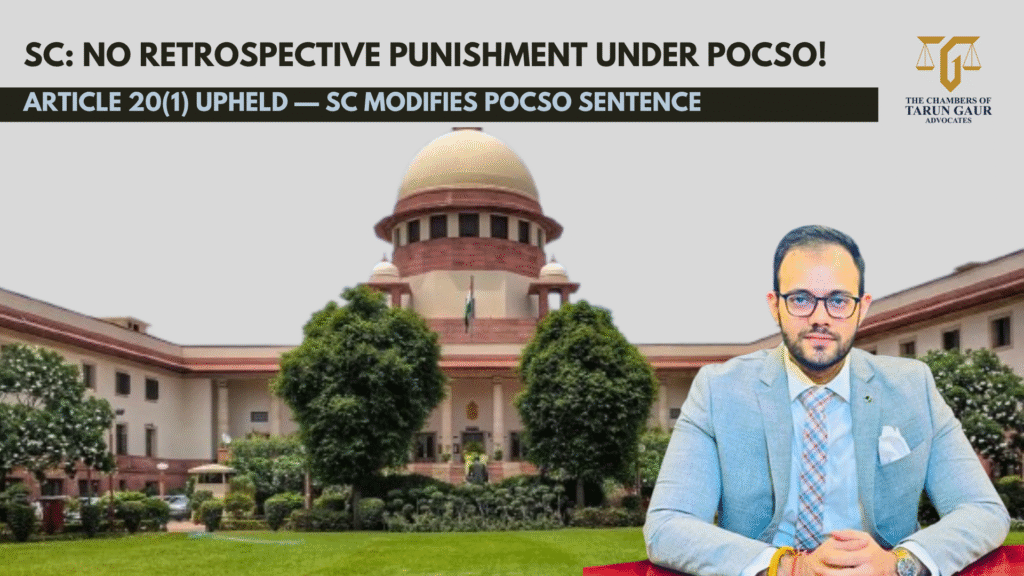In Satauram Mandavi v. State of Chhattisgarh, the Hon’ble Supreme Court has reaffirmed a core tenet of criminal law: no person can be punished beyond what the law allowed at the time the offence was committed. The ruling modifies the sentence of life imprisonment till remainder of natural life that was imposed under the amended POCSO Act — applied retroactively — and instead restores the punishment under the law as it stood before the 2019 amendment.
Case Snapshot:
-
Incident Date: 20.05.2019
-
Amendment Date: 16.08.2019
-
Offence: Rape of a 5-year-old girl
-
Trial Court Sentence: Life imprisonment till remainder of natural life (as per amended S.6 POCSO)
-
Supreme Court Holding: Sentence modified to conventional life imprisonment
The Constitutional Bar
The Court found that applying the 2019 amendment (which extended “life imprisonment” to mean remainder of natural life) violated Article 20(1) of the Constitution, which expressly prohibits the retrospective application of penal law.
The bench of Justices Vikram Nath and Sandeep Mehta rightly observed:
“The sentence of ‘imprisonment for life, meaning remainder of natural life,’ as per the amended provision, did not exist in the statutory framework on 20.05.2019.”
The SC’s judgment modifies the sentence while upholding the conviction, ensuring compliance with constitutional guarantees even in heinous crimes.
Advocate Tarun Gaur’s Legal Insight:
This ruling is a necessary and constitutionally correct intervention. While the offence is undoubtedly grave, the foundation of Indian criminal law lies in fairness, legality, and constitutional protections. This judgment reasserts that even the harshest crimes must be tried and punished under the law as it stood on the date of the offence — and not by standards created later.
Need expert advice in POCSO or criminal appeal matters? Reach out to Advocate Tarun Gaur – Best Advocate in Dwarka, practising before the Delhi High Court with a focus on criminal law, constitutional safeguards, and white-collar offences.

